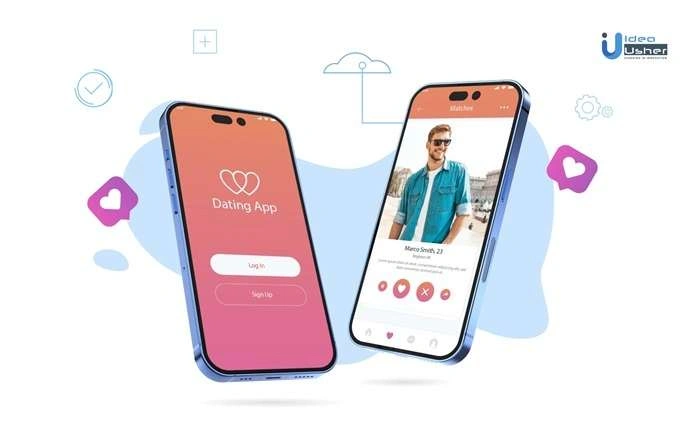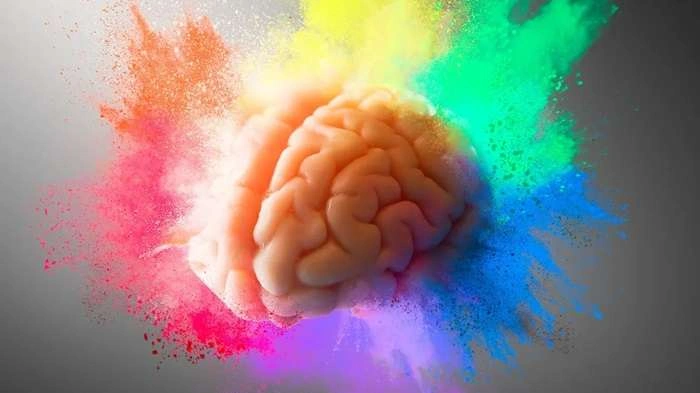In an era where technology intertwines with nearly every aspect of our lives, the quest for love and companionship has seamlessly transitioned into the digital realm. Dating apps have surged in popularity, promising to bridge the gap between singles and potential partners with just a swipe. But amidst the convenience and vast array of options, a pressing question arises: Are dating apps worth it? This article delves deep into the multifaceted world of dating apps, exploring their benefits, drawbacks, and everything in between to help you determine if they’re the right path for your romantic journey.
The Evolution of Dating
From Traditional to Digital
Dating has always been a cornerstone of human social interaction, evolving with societal norms and technological advancements. From arranged marriages and matchmaking services to speed dating and now, dating apps, the methods of finding love have diversified remarkably. Traditional dating often relied on personal introductions, social gatherings, and face-to-face interactions, emphasizing organic connections and shared environments.
However, the digital age revolutionized this landscape, introducing platforms that transcend geographical boundaries and social circles. Dating apps emerged as the latest iteration in this evolution, offering unprecedented access to potential partners with the tap of a finger.
The Rise of Dating Apps: A Timeline
The journey of dating apps began in the late 1990s with websites like Match.com, pioneering online dating. The early 2000s saw platforms like eHarmony and OkCupid introducing more sophisticated algorithms to match users based on compatibility factors. The advent of smartphones catalyzed the transition from websites to mobile applications, with Tinder launching in 2012 and revolutionizing the dating scene with its swipe-based interface.
Since then, the market has exploded with diverse apps catering to various niches, from Bumble’s female-first messaging approach to niche platforms like Grindr for the LGBTQ+ community. This proliferation underscores the significant role dating apps play in contemporary romance.
The Benefits of Dating Apps
Expanding Your Social Circle
One of the most significant advantages of dating apps is their ability to broaden your social horizons. Whether you’re new to a city, have a busy schedule, or simply looking to meet new people, dating apps provide access to a vast pool of potential matches beyond your immediate social circle. This increased exposure can lead to meaningful connections that might otherwise remain undiscovered.
Convenience and Accessibility
Dating apps offer unparalleled convenience. With a few taps on your smartphone, you can connect with someone from the other side of the world or within your neighborhood. The flexibility to browse profiles and engage in conversations at any time makes dating more accessible, especially for individuals with demanding lifestyles or those who prefer the comfort of their own space.
Variety and Choice
The sheer variety of dating apps available caters to diverse preferences and relationship goals. Whether you’re seeking a casual fling, a long-term partnership, or connections within specific communities, there’s likely an app tailored to your needs. This diversity ensures that users can find platforms that align with their unique desires and values.
Tailored Matching Algorithms
Modern dating apps utilize sophisticated algorithms that analyze user preferences, behaviors, and interactions to suggest compatible matches. These algorithms aim to increase the likelihood of successful connections by considering factors like interests, values, and relationship goals. While not foolproof, they provide a structured approach to finding potential partners.
Boosting Confidence and Social Skills
For some, dating apps can serve as a confidence booster. Engaging with multiple profiles and receiving positive feedback can enhance self-esteem. Additionally, navigating online conversations and building connections can improve social skills, making users more adept at communication and relationship-building in both digital and real-world settings.
The Drawbacks of Dating Apps
Superficiality and First Impressions
One of the primary criticisms of dating apps is their tendency to prioritize superficial attributes like appearance. The emphasis on profile pictures and brief bios can lead to snap judgments, potentially overlooking deeper compatibility factors. This superficial approach may hinder the development of meaningful connections based on personality and shared values.
The Paradox of Choice
While having numerous options can be empowering, it can also lead to decision paralysis. The abundance of potential matches might make users perpetually seek the “next best thing,” preventing them from committing to one person. This paradox of choice can result in dissatisfaction and an inability to form lasting relationships.
Ghosting and Lack of Commitment
Dating apps can sometimes foster an environment where ghosting—suddenly cutting off communication without explanation—becomes prevalent. The ease of swiping away and moving on to the next match can diminish accountability, leading to fragmented and non-committal interactions. This lack of commitment can be emotionally taxing for users seeking genuine connections.
Privacy and Security Concerns
Sharing personal information on dating apps poses privacy and security risks. Despite measures to protect user data, breaches and instances of data misuse can occur. Additionally, the prevalence of fake profiles and potential scammers requires users to exercise caution, adding an extra layer of vigilance to the dating process.
Mental Health Implications
The nature of dating apps can impact mental health. The pursuit of validation through likes and matches can affect self-esteem and self-worth. Moreover, the repetitive cycle of rejection and intermittent rewards can contribute to feelings of anxiety, depression, and loneliness.
Statistical Insights
Success Rates of Dating Apps
While dating apps have revolutionized the way people meet, their success rates vary. Studies suggest that a significant percentage of relationships now begin online, with platforms like Tinder and Bumble reporting millions of matches and numerous success stories. However, the exact success rate depends on how one defines success—be it casual dating, long-term relationships, or marriage.
For instance, a study by the Pew Research Center found that 30% of U.S. adults have used a dating app or website, and of those, 12% have married or been in a committed relationship with someone they met online. These numbers indicate a growing acceptance and effectiveness of dating apps in fostering meaningful relationships.
Demographic Variations
Dating app usage varies across different demographics. Younger generations, particularly Millennials and Gen Z, are the most active users, leveraging technology as a natural extension of their social interactions. However, older demographics are increasingly adopting these platforms, seeking companionship and love in their later years.
Additionally, specific apps cater to various niches, such as ethnicity, religion, and lifestyle preferences, ensuring that diverse populations can find platforms that resonate with their identities and values.
Trends and Future Predictions
The future of dating apps looks promising, with continued growth and innovation on the horizon. Trends indicate a shift towards more personalized and secure experiences, incorporating advancements like artificial intelligence, enhanced privacy features, and virtual reality interactions. The integration of these technologies aims to create more authentic and engaging connections, potentially increasing the effectiveness of dating apps in facilitating lasting relationships.
Personal Experiences and Stories
Success Stories: Finding Lasting Love
Many individuals have found lasting love through dating apps. Stories abound of couples meeting on platforms like Bumble or eHarmony, leading to marriages, partnerships, and deep emotional connections. These success stories highlight the potential of dating apps to transcend superficial barriers and foster meaningful relationships.
Take, for example, Emma and Jake, who met on Tinder after both moved to a new city. Their shared interests and mutual support helped them build a strong foundation, culminating in a successful marriage three years later. Such narratives underscore the app’s role in connecting individuals who might not have met through traditional means.
Challenges and Failures
However, not all experiences are positive. Some users encounter difficulties in finding compatible matches or face repeated instances of rejection and ghosting. The transient nature of online interactions can sometimes lead to frustration and disappointment, making the journey towards finding love more arduous.
Moreover, instances of misrepresentation, whether intentional or accidental, can complicate the dating process. Encountering dishonesty in profiles or discovering mismatches in personality after initial contact can dampen the overall experience.
Lessons Learned
Through these varied experiences, users often learn valuable lessons about themselves and the dating process. Patience, resilience, and self-awareness become crucial attributes in navigating the complexities of online dating. Understanding that not every match will lead to a meaningful connection can help manage expectations and reduce the emotional toll of unsuccessful encounters.
Psychological Perspectives
The Psychology of Swiping
The swiping mechanism—right for like, left for pass—has become emblematic of modern dating. This gamified approach leverages psychological principles such as intermittent reinforcement, where users receive unpredictable rewards (matches and messages), encouraging continued engagement. However, this can also lead to addictive behaviors, where the pursuit of validation becomes a compulsion rather than a genuine search for connection.
Impact on Self-esteem and Body Image
Constant exposure to curated profiles and idealized images can affect users’ self-esteem and body image. The pressure to present oneself attractively can lead to anxiety and dissatisfaction, particularly if comparisons with others result in feelings of inadequacy. Moreover, the focus on physical appearance may overshadow other important aspects of compatibility and personality.
Attachment Styles and Online Dating
Individuals’ attachment styles play a significant role in their online dating experiences. Those with secure attachment styles may navigate dating apps more effectively, seeking meaningful connections and handling rejections gracefully. Conversely, individuals with anxious or avoidant attachment styles might struggle with the uncertainties and superficial interactions inherent in online dating, potentially exacerbating insecurities and relational challenges.
Alternatives to Dating Apps
Traditional Dating: Pros and Cons
Traditional dating methods, such as meeting through friends, social events, or workplaces, offer organic and context-rich interactions. These environments allow for more nuanced connections, as individuals engage in shared activities and observe each other’s behaviors in real-time. However, traditional dating can be limited by geographical constraints and smaller social circles, potentially reducing the pool of potential partners.
Social Activities and Hobbies
Engaging in social activities and hobbies provides natural opportunities to meet like-minded individuals. Whether through sports, clubs, classes, or volunteer work, shared interests foster organic connections and offer a foundation for meaningful relationships. This approach emphasizes quality over quantity, allowing relationships to develop naturally without the pressure of online dating dynamics.
Matchmaking Services
Professional matchmaking services offer a more personalized approach to finding a compatible partner. Matchmakers use detailed interviews and assessments to curate potential matches, often focusing on long-term compatibility and shared values. While this option can be more costly, it provides a tailored and hands-on approach to dating, appealing to those seeking a more curated experience.
Community and Interest-based Platforms
Beyond romantic connections, community and interest-based platforms facilitate connections based on shared passions and activities. These platforms can lead to friendships, networking opportunities, and eventually romantic relationships, offering a more holistic approach to social interaction and relationship-building.
Tips for Maximizing Success on Dating Apps
Crafting an Authentic Profile
An authentic and well-crafted profile is crucial in attracting compatible matches. Use clear and recent photos that accurately represent yourself, and write a bio that reflects your personality, interests, and what you’re seeking in a relationship. Honesty and transparency can help set realistic expectations and attract individuals who appreciate you for who you are.
Effective Communication Strategies
Engaging in meaningful and respectful conversations is key to building connections. Ask open-ended questions, show genuine interest in your matches, and avoid generic or superficial topics. Effective communication fosters deeper connections and can help you better understand your potential partner’s values and compatibility.
Setting Realistic Expectations
Approaching dating apps with realistic expectations can mitigate disappointment and frustration. Understand that not every match will lead to a meaningful connection, and be prepared for the ups and downs of the dating process. Setting achievable goals, such as meeting a certain number of new people or focusing on quality interactions, can enhance your experience.
Balancing Online and Offline Interactions
While dating apps facilitate initial connections, transitioning to offline interactions is essential for building deeper relationships. Aim to move conversations beyond the app to phone calls, video chats, or in-person meetings when comfortable. This balance helps solidify connections and ensures that relationships develop beyond the digital interface.
The Future of Dating Apps
Technological Innovations: AI and Beyond
Artificial intelligence continues to enhance the functionality of dating apps. Advanced algorithms can better predict compatibility, analyze user behavior, and offer personalized recommendations. AI-driven features like chatbots can facilitate conversations and provide dating tips, making the experience more interactive and user-friendly.
Virtual Reality and Dating
Virtual reality (VR) is poised to revolutionize online dating by creating immersive and interactive environments for virtual dates. VR can simulate shared experiences, such as virtual dinners or adventures, fostering a deeper sense of connection before meeting in person. This technology has the potential to bridge the gap between online interactions and real-world relationships.
Ethical Considerations
As dating apps evolve, ethical considerations become increasingly important. Issues like data privacy, algorithmic bias, and the ethical use of AI must be addressed to ensure fair and secure experiences for all users. Developers and platforms must prioritize transparency, user consent, and inclusivity to build trust and maintain the integrity of online dating.
Weighing the Pros and Cons
Dating apps offer a blend of convenience, variety, and accessibility that traditional dating methods may lack. They open doors to a vast pool of potential partners, provide tailored matching algorithms, and fit seamlessly into modern lifestyles. However, they also come with challenges, including superficial interactions, the paradox of choice, and potential impacts on mental health.
Personal Suitability and Preferences
Determining whether dating apps are worth it ultimately depends on individual preferences, goals, and experiences. For some, the efficiency and breadth of options make them an invaluable tool in the search for love. For others, the potential drawbacks may outweigh the benefits, leading them to prefer more traditional or alternative methods of meeting partners.
Final Thoughts on Whether Dating Apps Are Worth It
In the grand tapestry of human relationships, dating apps are merely one of many threads contributing to the intricate patterns of connection. They offer significant advantages for those willing to navigate their complexities, providing opportunities to meet diverse individuals and form meaningful relationships. However, success on these platforms requires patience, authenticity, and a balanced approach to both online and offline interactions.
Ultimately, dating apps are a valuable resource in the modern quest for love, but their worth is contingent upon how they are used and the expectations set by each individual. By understanding their strengths and limitations, users can make informed decisions, leveraging these tools to enhance their romantic lives while remaining mindful of their personal needs and desires.
Related Post:
Free Dating Apps Without Payment: Find Love Without Spending a Dime
How to Delete Apps on Mac: A Step-by-Step Guide
How to Uninstall Apps on Mac: A Comprehensive Guide
Whether you choose to embrace the digital dating landscape or seek connections through more traditional avenues, the essence of finding love remains rooted in genuine connection, mutual respect, and shared values. In the end, the worth of dating apps lies not in the technology itself, but in how it facilitates the timeless human pursuit of companionship and love.




